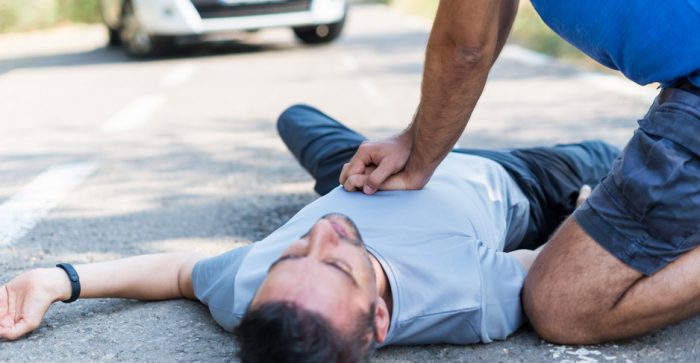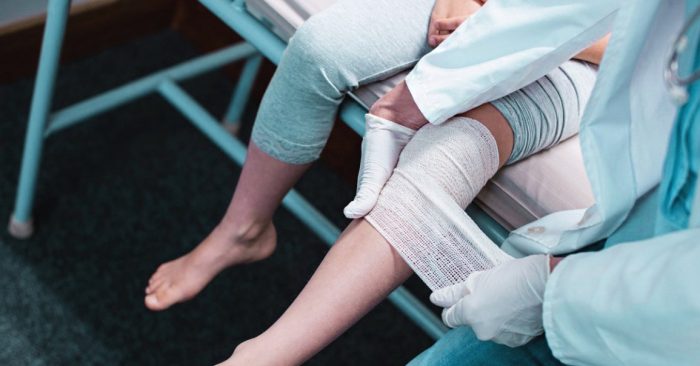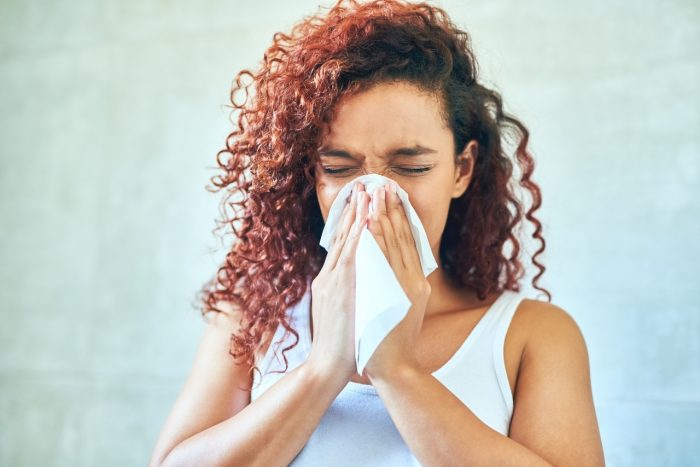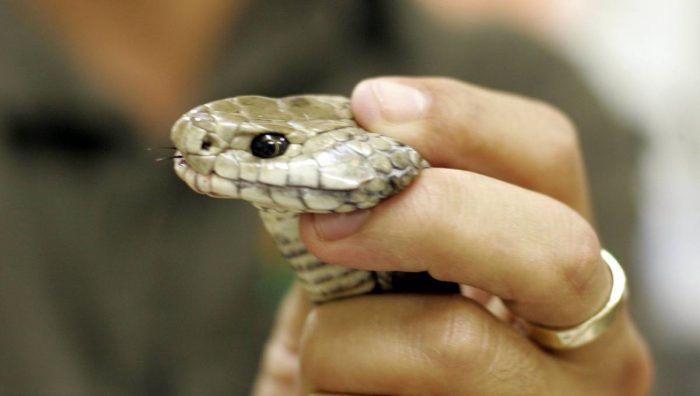
Emergencies happen without a moment’s notice, and they could happen to you, a loved one, or a stranger. It’s during those times when one act can save a life. Learning basic life-savings skills will not only ensure that you’re able to handle most types of emergencies, but they will also help open many career paths in the long run. Here are some basic emergency skills we should all know:
CPR
Cardiopulmonary resuscitation is a technique that is meant to sustain the heart’s functions when it stops beating. When a heart stops beating, CPR is used to manually pump blood and oxygen to the brain and organs in order to sustain the life of the victim until emergency personnel arrive. The brain begins to die within a few minutes of oxygen deprivation, and after 10 minutes, the brain will be considered irreversibly dead.
Contrary to popular belief, CPR does not restart the heart (this usually requires an electric shock from a defibrillator). CPR is a technique that is meant to sustain a victim, and it is therefore important not to give up on CPR before help arrives.

AED Use
While CPR is meant to sustain blood and oxygen supply to the lungs and brain, an automated external defibrillator is used to restart the heart. AEDs are available in most public areas and while a certification is recommended, AEDs can be used without training as the automated machine will guide rescuers through the process. However, it’s still recommended to get an AED certification in order to qualify for Good Samaritan law coverage.
Bandage Use
It’s important to know how to stop a person from bleeding heavily in order to prevent further blood loss. A person who loses too much blood will go into shock because the body’s organs aren’t getting the blood, oxygen and nutrients needed to maintain their functionality. It isn’t necessarily the blood loss itself that causes death, but rather the shock that comes from losing too much blood.

The Heimlich Maneuver
The Heimlich maneuver is meant to help choking victims dislodge the object that’s obstructing their airway. Choking is dangerous, as the brain is extremely sensitive to oxygen deprivation. A person deprived of oxygen starts to die within four to six minutes, which is also the window in which the Heimlich maneuver must be performed. Irreversible brain death occurs at 10 minutes. This is an important skill to learn considering that thousands of people die from choking every year.
Treating Burns
Burns vary from minor to severe, and you may not be sufficiently-equipped to handle severe burns. However, it should be noted that a burn that causes a break in the skin can lead to an infection, which can lead to sepsis. The objective of treating a burn is to manage pain, remove dead tissue, and prevent infection. Remember that extreme pain can cause a person to go into shock, and if the shock is severe enough, it can cause death.
Hypothermia Prevention

Hypothermia is a deceptively dangerous status because it is a slow death. Hypothermia occurs when the body’s core temperature drops to the point where muscular and cerebral functions become significantly impaired. If not treated quickly, hypothermia can result in lung and heart failure.
Hypothermia can be treated by bringing the victim to a warmer area, removing wet clothing, and by wrapping the person in a blanket or sleeping bag. Giving them warm fluids will help the body stabilize its core temperature. Caffeine and alcohol should not be given because their effects vary between individuals, that some people may feel colder after alcohol consumption and caffeine will place more stress on the heart.
Responding to Severe Allergic Reaction

Severe allergic reactions can cause death within 15 minutes if left untreated. When the reaction progresses significantly, it can cause your cardiovascular and respiratory systems to collapse. Some signs of a severe allergic reaction are: difficult in breathing, pale or blue skin, itching, vomiting, and anxiety.
Upon discovering someone suffering from a severe allergic reaction, it’s important to call 911 immediately. This is especially urgent if the person has not had such a reaction before. Most times, if a person has had the reaction before, they’re likely to carry an EpiPen (a spring-loaded shot of epinephrine). If the victim is unable to self-administer the EpiPen, look for the instructions on the side of the pen to administer the shot for the victim. You may need to give CPR if the victim does not have an EpiPen.
Snake Bite Treatment
A good rule of thumb is to assume that every snake bite is venomous. If you’ve just been bitten, get away from the snake as soon as possible to prevent being bitten again. Subsequent bites will lead to more toxins being injected into your body, which drastically diminishes your chances of surviving.

It’s important to call 911 as soon as possible, remove any jewelry before the swelling starts, and position yourself so that the bitten limb is lower than your heart to help slow the spread of the poison. Do not apply a tourniquet, ice, or even try to cut the wound, as this may worsen your condition. It’s very important to remember the size and coloration of the snake to help responders determine the best approach to your wound.
These life-saving skills may come in handy when you least expect it. Those who want to pursue a career in emergency and disaster management might want to consider enrolling in an emergency medical course like this one from Newcastle Training to help bolster your skill set. There are many more life-saving skills, but these are the most basic that should be considered the minimum standard of preparedness.
While it may be true that some of these measures can be performed without formal training, it’s important to consider whether you’re protected from any liability should your rescue attempt go wrong. Certification is one of the few ways that you may be granted protection through your state’s Good Samaritan Laws.








